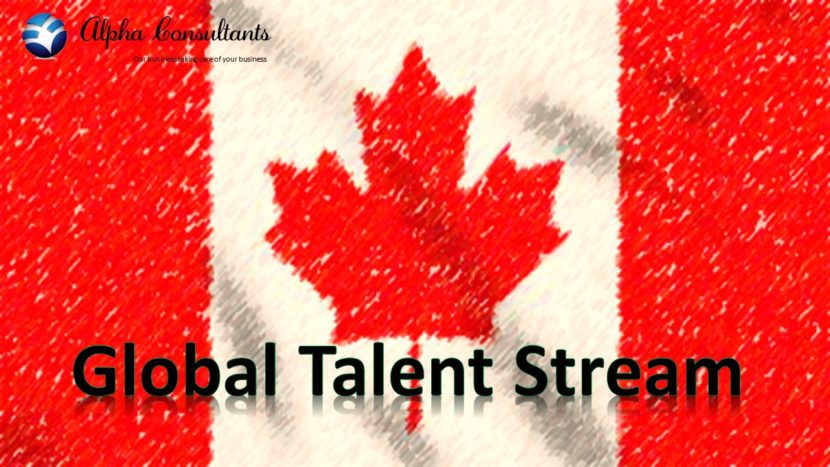Global Talent Stream
The Global Talent Stream allows certain skilled workers to obtain a work permit within two weeks of applying. It is one of the pillars of Canada's Global Skills Strategy, which aims to help innovative companies grow by ensuring they can access the highly skilled talent they need quickly.
Among other initiatives, this new work stream establishes a two-week standard for processing of work permit applications (and temporary resident visas, if applicable) for highly skilled talent. The Global Talent Stream is part of Canada's Temporary Foreign Worker Program.
There are two categories under the Global Talent Stream.
Category A
High-growth companies that can demonstrate a need to recruit unique specialized talent from abroad fall under Category A. Employers in this category must be referred to the Global Talent Stream by a designated referral partner.
As of June 12, 2017, the list of partners includes the following organizations. This list may be updated periodically.
- Atlantic Canada Opportunities Agency
- BC Tech Association
- Business Development Bank of Canada
- Communitech Corporation
- Council of Canadian Innovators
- Federal Economic Development Agency for Southern Ontario
- Global Affairs Canada’s Trade Commissioner Service
- Government of Manitoba, Manitoba Education and Training
- Government of Prince Edward Island, Island Investment Development Inc.
- ICT Association of Manitoba (ICTAM)
- Innovation, Science and Economic Development Canada - Accelerated Growth Service
- Invest Ottawa
- MaRS Discovery District
- National Research Council - Industrial Research Assistance Program (NRC-IRAP)
- Ontario Ministry of Citizenship and Immigration
- Ontario Ministry of Economic Development and Growth
- Venn Innovation
Category B
Employers seeking to hire employees in certain defined categories of the National Occupation Classification (NOC) fall into Category B. These occupations are listed on the Global Talent Occupations List, which may be updated periodically to respond to labour market needs. This list was developed through collaboration between the government, labour market experts and key stakeholders.
| NOC code | Occupation | Minimum hourly rate | Minimum annual salary |
|---|---|---|---|
| 0213 | Computer and information systems managers | Prevailing wage | Prevailing wage |
| 2147 | Computer engineers (except software engineers and designers) | Prevailing wage | Prevailing wage |
| 2171 | Information systems analysts and consultants | Prevailing wage | Prevailing wage |
| 2172 | Database analysts and data administrators | Prevailing wage | Prevailing wage |
| 2173 | Software engineers and designers | Prevailing wage | Prevailing wage |
| 2174 | Computer programmers and interactive media developers | Prevailing wage | Prevailing wage |
| 2175 | Web designers and developers | Prevailing wage | Prevailing wage |
| 2241 | Electrical and electronics engineering technologists and technicians | $38.94 or higher prevailing wage | $81,000 or higher prevailing wage |
| 2283 | Information systems testing technicians | $37.50 or higher prevailing wage | $78,000 or higher prevailing wage |
| 5231 |
Producers, directors, choreographers and related occupations |
$36.06 or higher prevailing wage | $75,000 or higher prevailing wage |
| 5241 | Digital Media and Design (positions requiring a minimum of five years' industry experience and specific skills only) | $38.46 or higher prevailing wage | $80,000 or higher prevailing wage |
Employers in both categories are required to meet conditions relating to the payment of skilled workers. Foreign workers hired through the GTS must be paid at the prevailing wage or higher. The prevailing wage is defined as the highest figure of either:
- the median wage for the occupation on Canada's Job Bank
- the wage within the range an employer pays current employees in the same position at the same location, with the same skills and experience
- the minimum wage floor as defined in the Global Talent occupations list (if applicable)
Labour Market Benefits Plan
Employers looking to hire skilled workers through the Global Talent Stream are required to work with Employment and Social Development Canada (ESDC) to develop a Labour Market Benefits Plan. This plan outlines the positive benefits that foreign talent will bring to the Canadian labour market, and activities that the employer will undertake to encourage job creation, skills and training investments.
Category A employers are required to commit to creating jobs for Canadian citizens and permanent residents. This job creation may be direct or indirect.
Category B employers are required to commit to increasing investments in skills and training for Canadian citizens and permanent residents.
In addition to the above mandatory benefits, employers in both categories are required to commit to two further complementary benefits, supported by defined activities. These benefits may include, but are not limited to, job creation, investment in skills and training, transferring knowledge to Canadian citizens and permanent residents, and/or improving company performance. Activities to support these benefits may include, but are not limited to, hiring more Canadian citizens or permanent residents, training current employees in new techniques, creating paid co-op or internship programs for local students, and/or increasing revenue and investments.
Employers may be monitored to ensure compliance with the Labour Market Business Plan, and to evaluate the successes of the GTS.
Work Permit Exemptions
Under the Global Talent Stream, two new categories of workers are now exempt from the requirement to obtain a work permit.
Highly-skilled workers in skill type 0 or skill level A occupations of the NOC may enter Canada to work for 15 days in a six-month period, or for 30 days in a 12-month period, without obtaining a work permit.
Researchers working on research projects at a publicly-funded degree-granting institution or affiliated research institution may come to Canada for 120 days in a 12-month period, without requiring a work permit.

